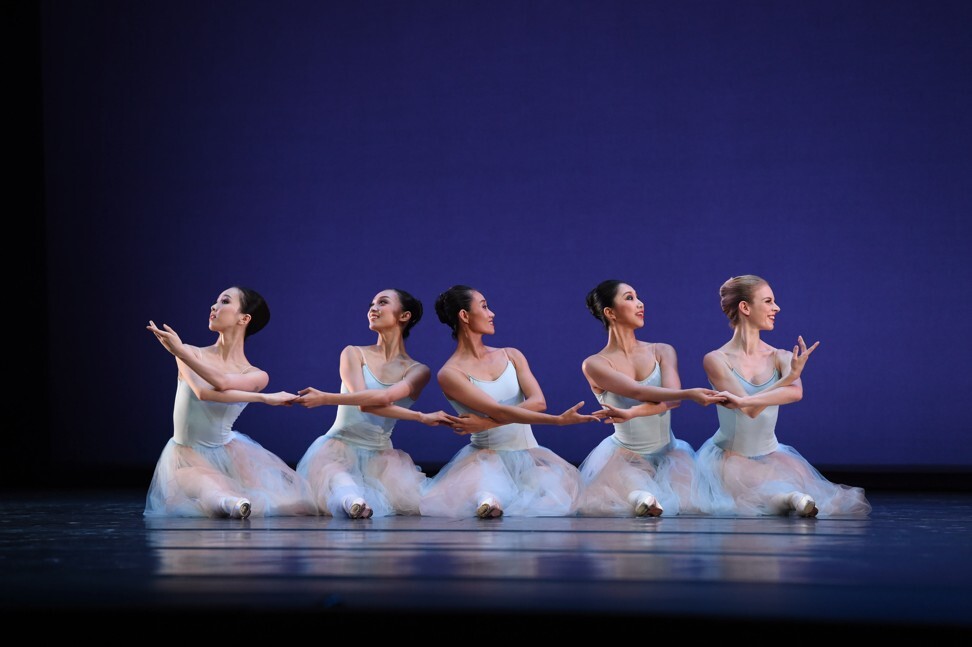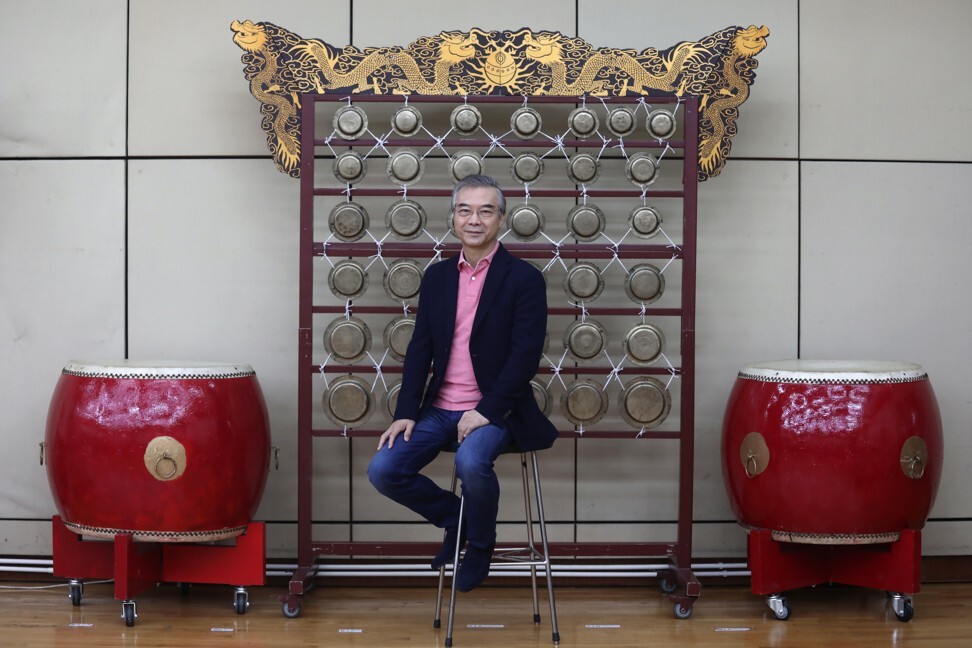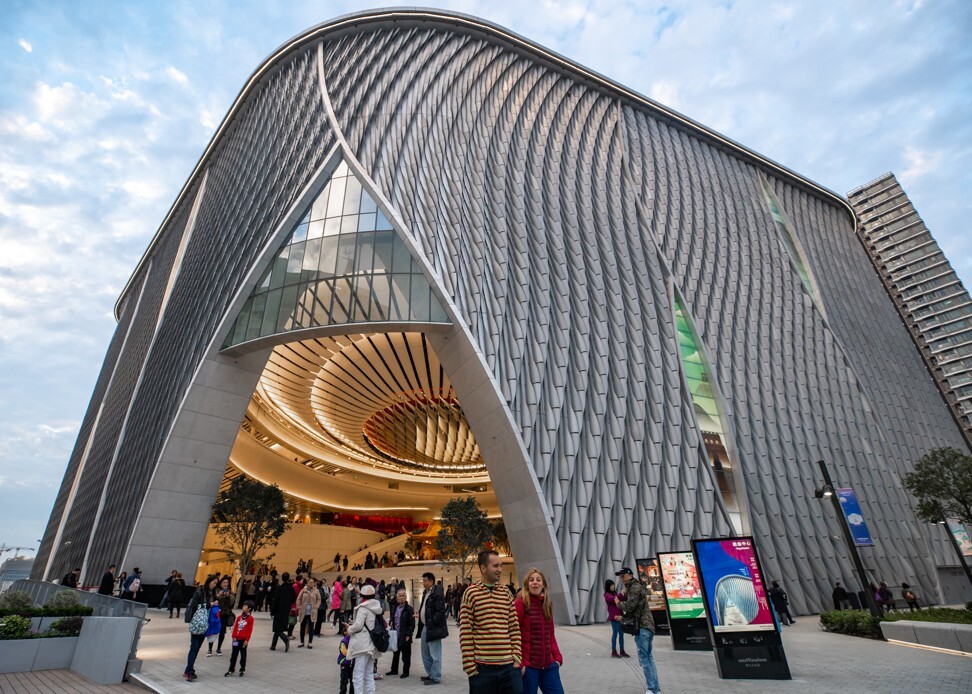
Closed venues, cancelled programmes: Hong Kong artists anxious for pandemic measures to ease, so the show can go on
- Dancers, musicians, Cantonese opera performers keep in shape, waiting for shows to resume
- With no income through most of 2020, some artists forced to take up part-time jobs to survive
Holding on to the back of a chair, ballet dancer Jessica Burrows stretches and works on her techniques in the living room of her flat in Tai Hang.
The 29-year-old Canadian who joined the Hong Kong Ballet (HKB) in 2019 has been practising alone at home since the Covid-19 crisis struck the city in January, forcing arts venues to close.
Instead of joining daily ballet classes with other dancers in a studio, she now signs on to online sessions via Zoom from her 150 sq ft living room.

She has rearranged the furniture, but the space remains too small for jumps and turns. The floor is slippery and hard, and she must take extra care not to injure herself.
“As dancers, we need to move. That is in our blood,” she says. “Dancing is a social art form. We communicate with our bodies.”
The pandemic hit Hong Kong performing arts scene hard, as the closure of venues and social-distancing measures resulted in cancelled shows, disrupted rehearsals and slashed income for many performers and musicians.
Burrows says what she misses most is being on stage. A professional dancer since 18, she has had featured roles in HKB productions including Swan Lake, The Sleeping Beauty and The Nutcracker.
It has been disheartening to see two tours and four to five shows that she was involved in cancelled by the pandemic.

“The past 10 years of my life have been about preparing for performances, which have been a huge part of my life,” she says. “It is very emotionally draining on artists to not be able to perform and give to our audience.”
Cantonese opera artists struggle to cope
Cantonese opera artist Christie To Wing-sum, who specialises in male roles like Chow Sai-hin in the classic Princess Cheung Ping and Cao Zhi in Goddess of River Luo, had about 120 shows cancelled since January and her monthly income of about HK$20,000 working for various troupes has vanished.
The 27-year-old, who started learning Cantonese opera at the age of four and turned professional at 23, has been practising her singing, martial arts moves and acrobatics at home.
Arts venues may allow rehearsals by mid-month, but no live shows yet
Apart from the limited space, she says practising alone at home deprives her of face-to-face interaction with her teachers and other artists. Sometimes, she lacks the motivation to do it herself.
“Cantonese opera attaches great importance to stage performance. We have live performances, and live interactions with the other performers as well as the audience,” she says. “Practising at home is inadequate and no substitute for all that.”

When rehearsals resumed last month at Xiqu Centre, a venue in the West Kowloon Cultural District, everyone had to wear masks. She said the face coverings muffled their voices and concealed their facial expressions, a key part of opera performances.
Marilyn To Wai Sau-ming, chairwoman of the Hong Kong Young Talent Cantonese Opera Troupe Company, says the troupe had to cancel all shows since late January, losing HK$600,000 to HK$700,000 in revenue.
As the company relies entirely on ticket sales, its 11 full-time artists have had no income, and some had to take on part-time work, such as delivery and packaging, to survive.
Conductor quarantined in Hong Kong warns of threat to live classical music
As the artists have not rehearsed or attended regular classes since January, To is worried that it will take a big effort for them to get back in shape again for regular performances.
“It is a setback to young artists’ pursuit of the art,” she says.
Musicians and dancers rehearse at home
Yan Huichang, artistic director and principal conductor for life of the Hong Kong Chinese Orchestra, which has more than 80 full-time musicians, says it cancelled 26 concerts between February and July.
The pandemic also disrupted its rehearsals. Most musicians wear masks while playing bowed-strings, plucked-strings and percussion instruments in their three studios in Sheung Wan. About 20 musicians who play wind instruments, like the flute and suona, a traditional horn, tried performing behind transparent glass boards, but the sound was affected.
I have never experienced such a challenging time in my career
As a result, the orchestra has taken to rehearsing without wind instruments, Yan says. In mid-August, its musicians tried rehearsing online from home, but available video conferencing technologies do not allow for more than a dozen sounds simultaneously, and some high-pitched sounds are muted automatically, he says.
Some musicians, especially those playing the suona and percussion instruments, also received complaints from neighbours for being too loud.
Yan says the pandemic disrupted his own work as a conductor, as it is difficult to conduct online. His work trips to Taiwan and the Chinese mainland were also cancelled.
“I have never experienced such a challenging time in my career,” he says.

Septime Webre, artistic director of the Hong Kong Ballet, one of Asia’s premier ballet companies formed in 1979, says it has cancelled or postponed several shows, including choreographer George Balanchine’s Jewels, which has been rescheduled to May 2021, and Romeo and Juliet, which has been postponed to next June.
“It is certainly a challenging time for all arts organisations,” he says. “But we also know that society needs artists more than ever when the community is facing challenges, so we want to contribute.”
Thinking outside the box
Despite the challenges, artists have been creative in finding new ways to rehearse new shows and deliver programmes during the pandemic.
Most artists choose their careers out of passion … But if the pandemic drags on for too long, it may be too difficult for them to survive
“One of the things that Covid-19 has done is, it has forced ballet companies and other creative institutions to figure out how to deliver programming and meaningful, cultural experiences in a new way,” Webre says.
The Hong Kong Chinese Orchestra also launched a series of online projects, featuring musicians performing from home, offering selected concerts, and teaching music.

Its online Chinese music festival in June invited local musicians and composers to create original music works and submit them online. More than 1,000 participants submitted a total of 133 pieces of music.
Artistic director Yan says the orchestra dug into its anti-pandemic fund to award and help musicians through this difficult time.
Hong Kong musicians fall on hard times as Covid-19 relief passes them by
“We intend to help young, talented musicians,” he says. “We’re amazed by their dedicated, high-quality work.”
The government set aside HK$150 million under the anti-pandemic fund to assist the arts and culture sector, but with the pandemic dragging on, arts groups and artists have called on the government to do more.

Ma Fung-kwok, lawmaker for the sports, performing arts, culture and publication sector, says more than half of about 100,000 practitioners in the sector have not received any support so far, and many have struggled with no work and slashed income.
He hopes the government will reopen arts venues and relax social-distancing rules, so artists can resume work.
“Most artists choose their careers out of passion, so they would try to persevere,” he says. “But if the pandemic drags on for too long, it may be too difficult for them to survive, and a talent drain may ensue.”

